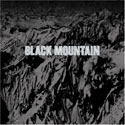
Black Mountain
Black Mountain
Jagjaguwar
The two names bandied about when discussing Black Mountain are The Rolling Stones (circa Exile on Main Street) and early Black Sabbath. While these references do retain a ring of truth, the actual influences Black Mountain draw upon are far too many to capture in such musical shorthand. De-facto ringleader and principle songwriter Stephen McBean is smart enough to write songs with hooks and chops that are instantly recognizable, thereby indicating some of his influences. Yet, he covers most of his tracks with a laconic vocal style and lyrics that are slightly more expansive than these references would suggest. Name-checking possible references by naming one track “Druganaut” and another “No Satisfaction” serves only as red herring; both are anything but direct cop-outs or copies of the songs whose title they may share. “Druganaut” itself is a leisurely groove that screams sex with a languid rhythm section that ebbs and flows. “No Satisfaction,” on the other hand, is a driving proto-Velvet Underground track that The Strokes have ridden to success. But The Strokes’ Julian Casablancas would have given his right arm to have written a song this positively joyous and enthusiastic.
The opener, “Modern Music,” sets the stage with its skronking saxophone bleating and rolling drum fills, as McBean sings, “Oh, I can’t stand your modern music.” McBean’s singing style, existing as it does somewhere between nodding off and barely waking up, places heavy emphasis on the last syllables as “music” slurs into “musack,” as if no more of an insult could be delivered. Counterbalancing McBean’s cryptic style is Amber Webber’s vocals that almost border on a call and response with an emphatic “no way” between verses, carrying the cadence that remains the hallmark of this track. If Webber only shares vocal duties on this track, she remains a prominent presence throughout the remaining tracks. Webber’s singing is particularly welcome on the heavier tracks, such as The Blue Cheer inspired rave-up “Don’t Drag our Hearts Around,” the anti-war ode “Set us Free” and the closing track, “Faulty Times.” Her presence alone guarantees this record offers something more than the aforementioned references to possible influences would suggest. Who can imagine an early Mick Jagger or Ozzy sharing the microphone with a woman on one song, let alone eight?
Black Mountain bill themselves as a collective and not as a band, and it is this spirit that comes shining through on this album. Of all the possible influences that the band draws from, perhaps it is the utopian spirit that emanated from California in the sixties that lingers here. That brief, shimmering moment when the personal and political commingled, that’s what comes across most clearly on this release. Black Mountain works just as good for getting your groove thing on as for throwing rocks at the president’s motorcade.
Black Mountain: http://www.jagjaguwar.com/blackmountain/












